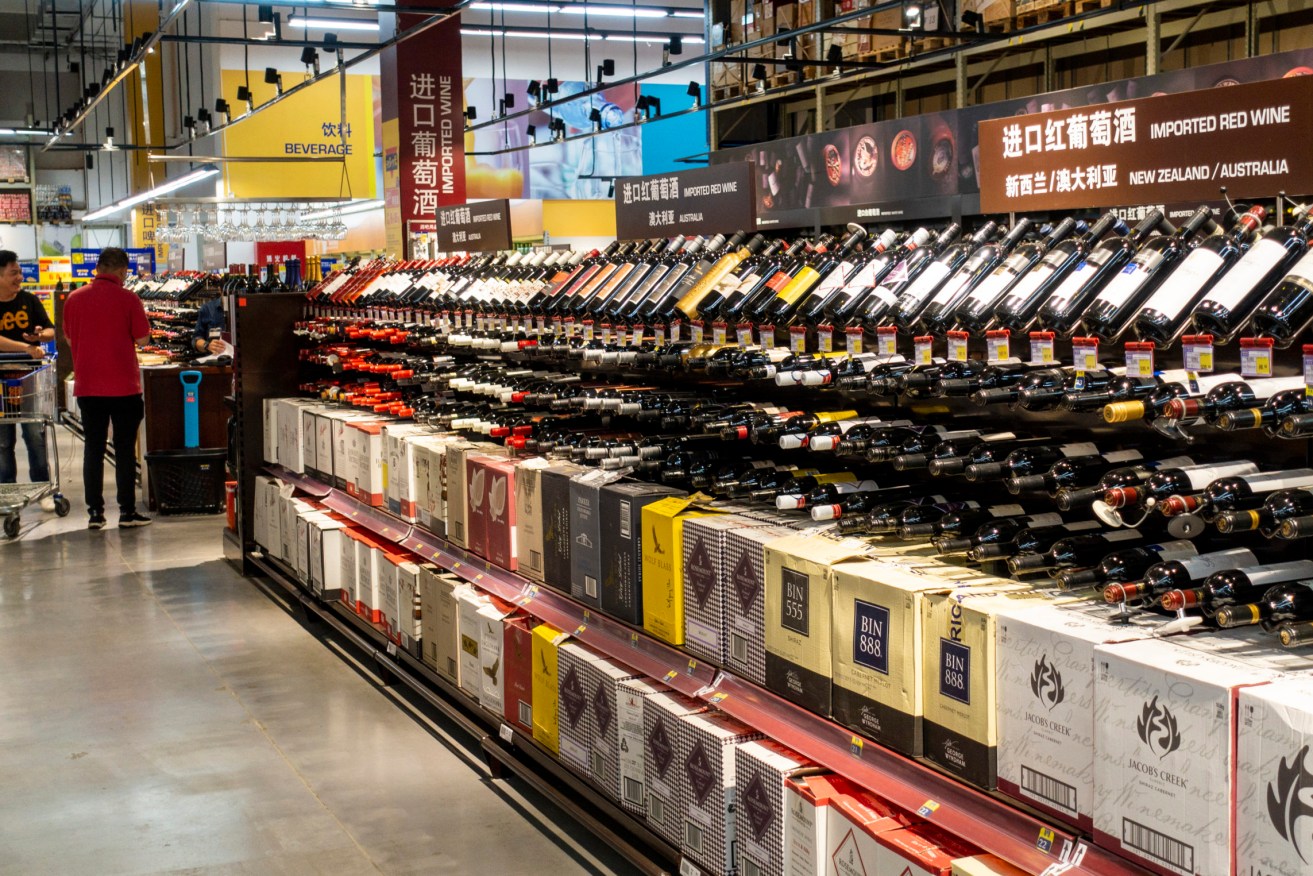Australia’s losses from China tariffs in the billions – and counting
China’s decision to slap punitive tariffs on a range of Australian goods has already cost more than $6 billion in lost exports, with Adelaide researchers warning regional South Australia has borne the brunt of the ongoing diplomatic dispute.

Photo: Imaginechina via AP
Researchers from the University of Adelaide estimate that Australia lost about $6.6 billion in revenue to the Chinese market between July 2020 and February 2021 as a direct consequence of Beijing targeting its exports with heavy tariffs, claiming they were part of ‘anti-dumping’ measures.
Key Australian commodities including wine, barley, coal, copper ores and concentrates, frozen beef, cotton, rough wood and rock lobster have been hit.
The tariffs have severely impacted local industries, with wine sector profits plummeting from $325 million to just $12 million over the December 2020 to March 2021 period after being hit with China tariffs of up to 212 per cent.
China had previously been Australia’s largest wine export market with $1.2 billion worth shipped in the 2019-20 financial year. South Australia is responsible for 50 per cent of Australian production.
China also imposed an 80 per cent tariff on Australian barley, and kept dozens of vessels carrying Australian coal anchored off Chinese ports for weeks, unable to unload.
The tariffs were widely viewed as Chinese Government reaction to Australia’s calls for an investigation into the origins of coronavirus, its vocal criticism of human rights abuses, and the imposition of foreign investment and interference laws.
This report should be a wake-up call to Canberra
But researchers say a fortunately-timed jump in the price of iron ore and other key commodities that China continues to import has “hidden from view the dramatic costs of China’s trade war against Australia”.
They estimate that Australia-China trade declined by over 23 per cent in 2020 when iron ore exports are taken out of the equation.
That figure grows to 48 per cent if non-iron-ore merchandise exports between January and March 2021 are compared with those for April-June 2020 – before the diplomatic relationship started to deteriorate.
All up, the researchers estimate that if Australia ceased exporting its eight key commodities for a full year, it would lose $23 billion.
The findings form part of a new report commissioned by Adelaide University’s Institute for International Trade to determine the true cost of China’s trade actions.
One of the report’s authors and former Department of Foreign Affairs and Trade (DFAT) economist Dr Mike Adams told InDaily that while the research does not quantify the direct impact on South Australia’s economy, “regional South Australia would bear the brunt” of China’s tariffs.
“The wine industry certainly… has been hammered by what’s gone on with China – those huge tariffs – because China was a big, premium market for Australia in wine,” he said.
“To lose that is an enormous blow… to obviously South Australia and more generally to smaller wine producers.”
Adams said barley farmers had also been hit hard by a 80 per cent tariff, but that industry was “a good example of where we are diversifying”.
“We were selling premium malt barley to China and for the most part, what we’re (now) doing is we’re selling barley to Saudi Arabia, Vietnam, the Philippines and other particular markets.
“It’s good that we’re doing that – it’s money – but we’re certainly in a substantial way the price premium that we otherwise enjoyed.”
The report found that Australia’s attempts to diversify into other markets outside China had been “successful to varying degrees”.
“To date, diversification has generally not matched markets lost through China’s economic coercion and discriminatory purchasing,” it states.
“Barley is a success story, albeit at a cost of lower returns, but industries like wine and rock lobster have struggled.
“Coal has been sold at substantial discounts.
“For industries like iron ore and wool, China has a strong interest in maintaining the trade and they appear likely to remain largely unscathed in the short term.”
According to the report, even if Australia was to return to more normal relations in China, it would “probably fail to restore these markets, though it would certainly help”.
“Not surprisingly, other countries have sought to target, or at least benefit from, opportunities arising from China’s actions against Australia,” it states.
“With coal, this is true to varying degrees for Russia, Indonesia and Mongolia.
“In the case of rock lobster, countries as diverse as Vietnam, New Zealand and Mexico have captured increased market share. And for cotton, the United States is an important beneficiary.”
Adams said he would share his report’s findings with DFAT.
He said the Government should cease making “loud statements to the sectional interests within Australia” if it wants to minimise the impact of China’s tariffs.
“The Government should tone down its statements on China (and) it should try to reintroduce more civility into the relationship,” he said.
“It’s (The Government) got to encourage diversification and it’s got to use every chance that it has to engage with the United States, because that’s going to be critical in whatever we do with China.
“It also needs to be engaging with our other regional partners in south-east Asia and what have you because these countries have been coexisting with China and they’re getting the chances and opportunities.”
Adelaide University Institute for International Trade lecturer Dr Naoise McDonagh added that Canberra and the business sector “need to wight risks and plan long-term China risk mitigation and diversification strategies”.
“This report should be a wake-up call to Canberra to accelerate its role in pushing diversification, as well as diplomatic strategies for cooling tensions,” she said.




